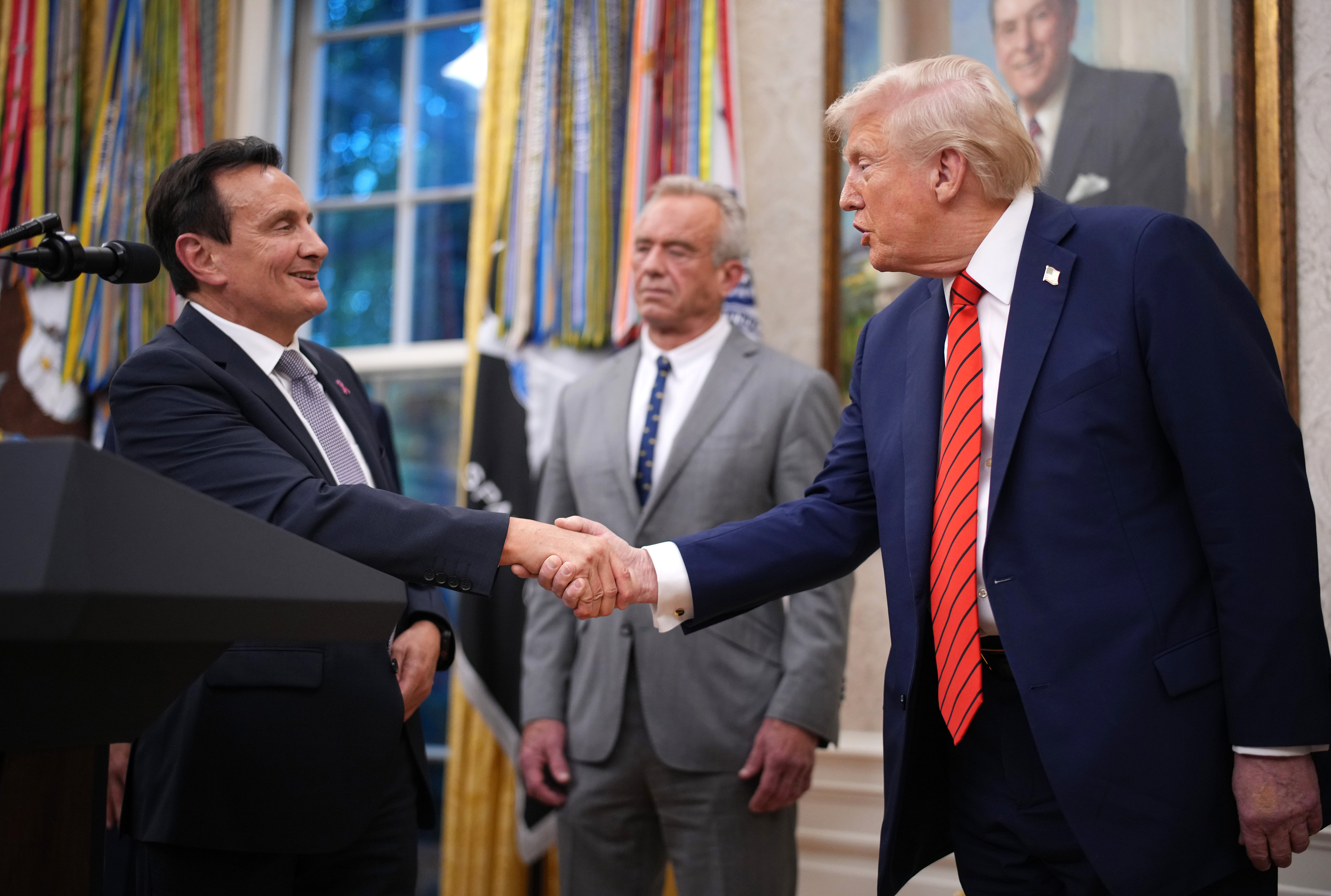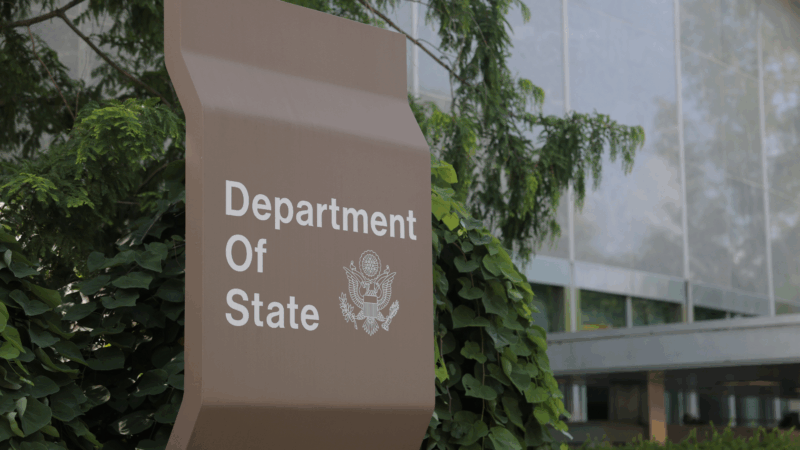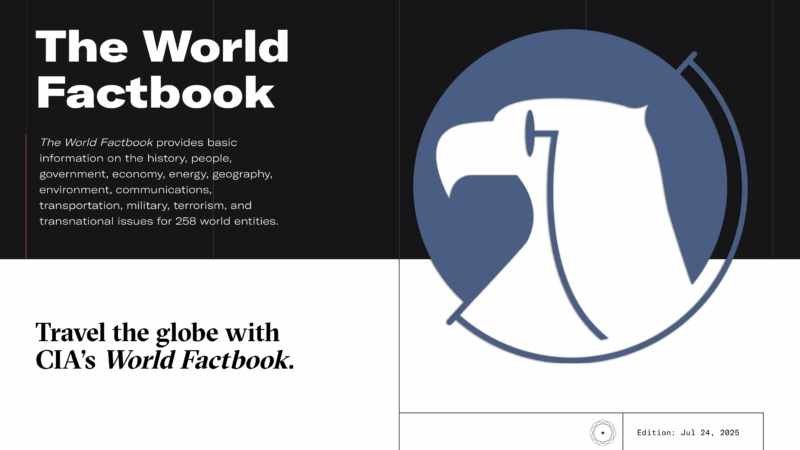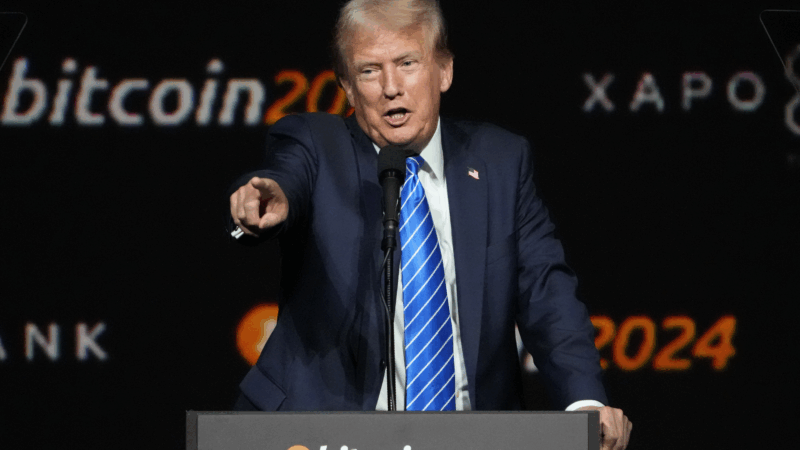AstraZeneca makes deal with White House to lower drug prices
AstraZeneca became the second drugmaker to enter a deal with the Trump administration to offer lower prices to Medicaid and to offer some of its drugs at a discount through TrumpRx, a government website to facilitate sales directly to consumers.
“In other words the lowest price anywhere in the world, that’s what we get,” President Trump said during an Oval Office press conference Friday. The centerpiece of the deal is most-favored-nation pricing for drugs sold to Medicaid. That would link Medicaid prices to the lower ones paid in other developed countries.
As part of the deal, AstraZeneca will also offer discounts of up to 80% off list prices on direct sales to consumers, according to a company statement. Its drugs include inhalers like Bevespi Aerosphere for people with COPD and Airsupra for people with asthma. AstraZeneca, based in the U.K., also said it would expand drug manufacturing and research in the U.S.
In return for these commitments, the drug company will get a three-year exemption from certain tariffs.
The White House unveiled its plan for TrumpRx and a similar deal with Pfizer on Sept. 30. The website will help patients access drugs at lower prices — bypassing health insurance.
TrumpRx is part of a broader initiative the administration says is aimed at bringing prices paid by Americans more in line with those paid in other developed countries.
The announcement follows an executive order in May, and letters to 17 pharmaceutical companies sent out over the summer to push them to lower prices voluntarily.
The TrumpRx website is expected to launch sometime in 2026, and would take consumers to pharmaceutical companies’ direct-to-consumer websites to fulfill orders.
The impact of the Trump administration deals with pharmaceutical companies for consumers is unclear. Medicaid and its beneficiaries, for instance, already pay some of the lowest prices for drugs. And people with health insurance could spend less on their medicines through copays than buying them directly from AstraZeneca.
AstraZeneca also said Thursday that it would invest an additional $500 million in a new manufacturing facility in Virginia, raising the investment to $4.5 billion. That’s part of a $50 billion investment announced in July to expand manufacturing facilities in California, Indiana, Maryland, Massachusetts, Texas and Virginia, as well as other research and development efforts.
“For all the pharmaceutical companies out there — we’re talking to all of you, pick up a shovel,” said Dr. Mehmet Oz, who leads the Centers for Medicare and Medicaid Services, during the press conference.
Trump said his administration had gotten a total of $18 trillion total commitments to re-shore pharmaceutical manufacturing. NPR wasn’t immediately able to independently confirm that number.
They’re cured of leprosy. Why do they still live in leprosy colonies?
Leprosy is one of the least contagious diseases around — and perhaps one of the most misunderstood. The colonies are relics of a not-too-distant past when those diagnosed with leprosy were exiled.
This season, ‘The Pitt’ is about what doesn’t happen in one day
The first season of The Pitt was about acute problems. The second is about chronic ones.
Lindsey Vonn is set to ski the Olympic downhill race with a torn ACL. How?
An ACL tear would keep almost any other athlete from competing -- but not Lindsey Vonn, the 41-year-old superstar skier who is determined to cap off an incredible comeback from retirement with one last shot at an Olympic medal.
State Department will delete X posts from before Trump returned to office
The policy change orders the removal of any post made by official State Department accounts on X before President Trump returned to office in 2025.
The CIA World Factbook is dead. Here’s how I came to love it
The Factbook survived the Cold War and became a hit online. It mixed quirky cultural notes and trivia with maps, data, and photos taken by CIA officers. But it was discontinued this week.
Trump promised a crypto revolution. So why is bitcoin crashing?
Trump got elected promising to usher in a crypto revolution. More than a year later, bitcoin's price has come tumbling down. What happened?







